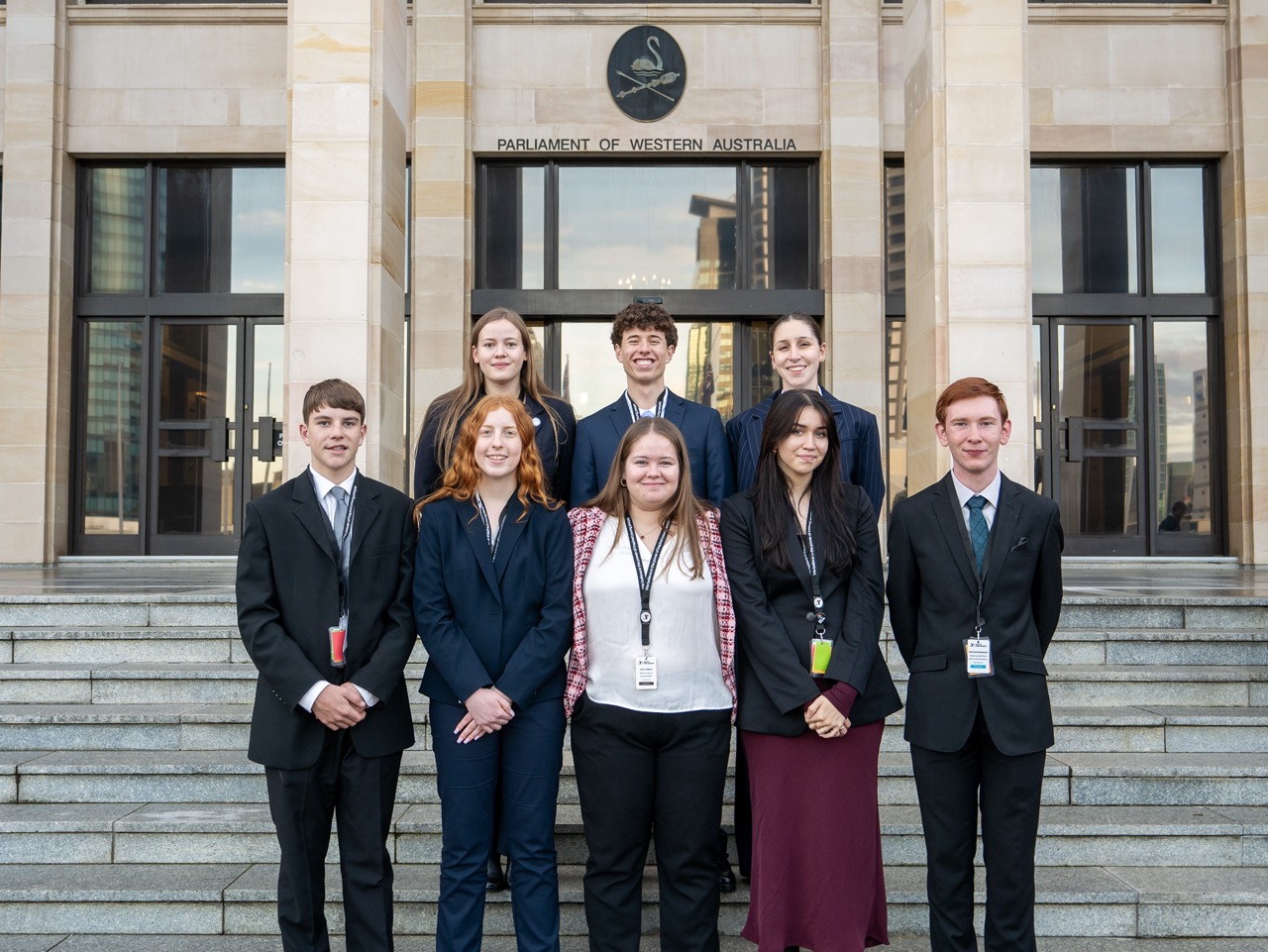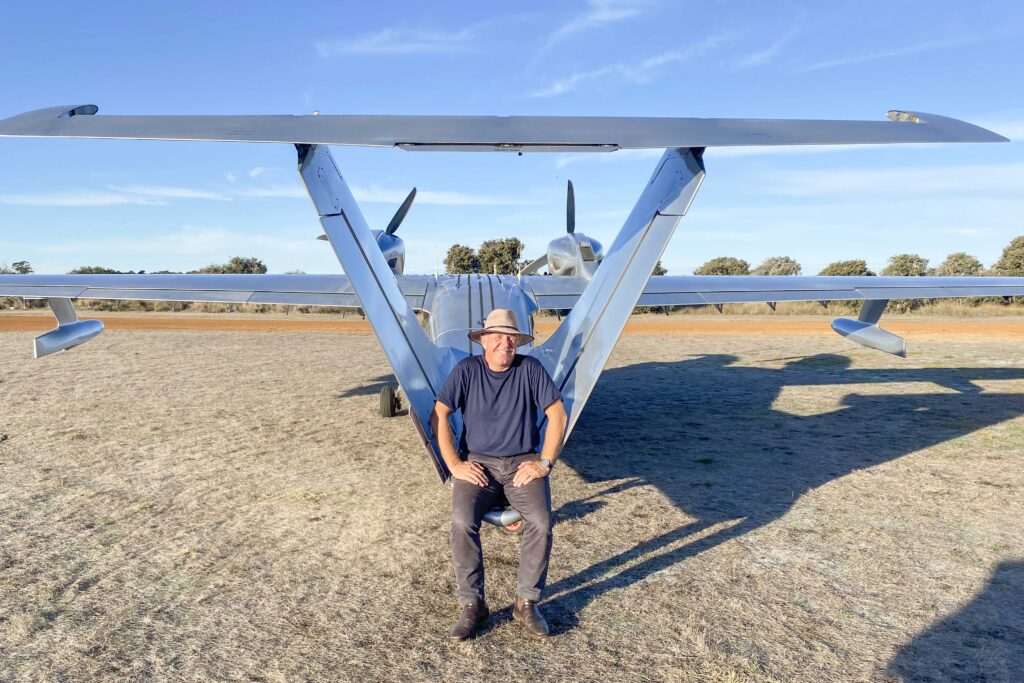2024 participants – back row (L-R): Amelia Glass, Alexander Fine, Sascha Finlay-Collins, Front row: Trey Westlake, Peta Humphreys, Emer O’Brien, Sophia Holmes, Samuel Greenwood. Photo: supplied.
Recruitment is underway to find the next generation of youth leaders to take part in the Y-run Youth Parliament.
This year, the program has been running for three decades, encouraging young people to have a voice in Parliament and their local communities, and showing adults the pressing political concerns of West Australia’s youth.
The four-month program is calling for young people aged 15 – 25, representing all 59 electoral districts, to come together to address issues facing youth, create meaningful connections, and develop leadership skills that can be utilised to make social impact.
Program participants act as “youth members”, representing a state electorate in Parliament.
The bills they debate are then presented to the Governor, Premier, and Leader of the Opposition in WA for reflection and consideration.
In 2020, the Y WA Youth Parliament passed the Coercive Control Bill 2020 that set out to extensively define Coercive Control and four years on, NSW and QLD had introduced laws about it.

Similarly, WA’s Family Violence Legislation Reform Bill 2024 was passed in September and includes reforms to prevent coercive control, protect victims, and hold perpetrators accountable.
In 2012, Y WA Youth Parliament considered a bill banning single-use plastic bags and in 2018 the WA State Parliament passed the Environmental Protection Amendment (Banning Plastic Bags and Other Things) Bill, which instituted the statewide ban.
Y WA Chief Executive Officer Dr McDonald suggested the informative nature of the Youth Parliament process, which has preceded WA Parliament later considering these topics and weighty issues, is a testament to the importance of the program and the engagement process.
“The fact that some of the bills young people have researched, development and written, then debated and passed in their parliamentary sittings, are now legislation across our country is further evidence of why we should be listening to the voices of our youth,” said Dr McDonald.
‘Our young people have a lot to say, and this program gives them a chance to speak up and be heard.”
Other previous Youth Parliament bills covered daylight saving, sexual health, housing affordability, environmental responsibility, water provision, education, juvenile justice, health access in the regions, entertainment precinct curfews, youth-based decision making and learner driver laws.
Youth Parliament is organised by young people, including volunteers and many former participants and where possible, participants are supported so they can attend, including assistance with travel funds and gaining subsidies or sponsored program fees.


